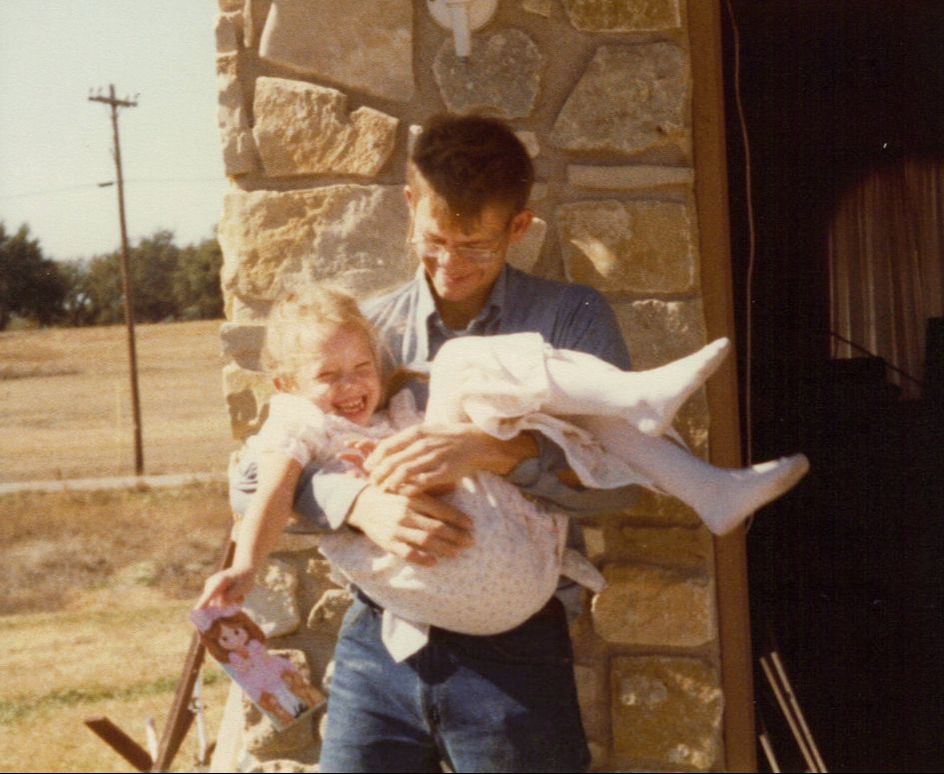|
Happy Father's Day, everyone! Here's a picture of me and my dad - he is pretty much the best dad ever... a loving adventurer who is always learning and sharing his findings. From the very beginning, he has opened my eyes to the beauty of this world, and taught me to slow down and drink it all in. My siblings and I have been so very fortunate to have him as our father. (BTW, that dirt road in the background is where he helped me learn how to ride a bike.) My dad has also modeled how to think like a scientist for me - how to observe, collect data, test theories, evaluate evidence, and not jump to conclusions. He has been so supportive of my journey toward becoming a genealogist, including a willingness to participate in DNA testing.
I have come across all kinds of fathers during my research. There have been strong patriarchs who fathered scores of children, and managed to keep a close family with a shared identity and purpose. There have been beloved fathers who died young, leaving their wives and children vulnerable to scoundrel step-fathers. There have been men who have fathered children, but never (or very late) stepped up to share the responsibilities of parenting them. There have also been the fine men who may or may not have had biological children of their own, but became step-fathers for children who desperately needed them. (That's just the tip of the iceberg... let us also not forget the single mothers who have acted as both mother AND father for their children, fostering /adoption, and more recently, sperm donors, and same-sex parents who became parents through IVF/surrogacy - fatherhood gets complicated, fast!) All of this has shaped my perspective on what it means to be a father. While genealogy often focuses on biological fathers, we must also leave room for the men who acted in a fatherly role during their lives, and recognize that fathering a child is not the same thing as raising one. I keep all of this in mind when I conduct research using YDNA - identifying shared Y chromosomes between fathers and sons along the paternal line. I am a big fan of YDNA testing. It can be used in tandem with autosomal DNA research, and it also picks up right where autosomal DNA testing starts to get shaky - around 6-8 generations back. Men who participate in YDNA testing need to be aware that there is a possibility of finding out about a "Non-Parental Event" at some point on their paternal line, which may come as a surprise. Ideally with YDNA testing, we are searching for a situation where the resulting DNA matches come back with the same surname, as well as a matching paper trail. If your YDNA results come back with matches with surnames other than yours, then it is likely that a non-parental event has occurred, either "upstream" or "downstream" from your shared paternal ancestor. It is pretty exciting to receive YDNA results which confirm the stories your family has shared for generations - to look on the list of shared matches and see the same surname over and over, and even more exciting to make contact with a match and discover they have a shared paper trail. BINGO! This is what most of us are seeking. However, keep in mind that you are just as likely to open your list of matches and see many different surnames, or reach out to matches and find out that they have very different paper trails. While this might be disappointing at first, it does create an opportunity to open your mind to a new story for your family, one which hasn't yet been told, but might result in the addition of a new "father" in your line. If you are willing to be open to this possibility, I highly recommend that men in your family consider participating in YDNA testing - adding the results to your "genealogical toolbox" can make a big difference in your research. So here's to my amazing father! And to all our fathers, biological and beyond. Anyone who steps up to make life better for our children has a gold star in my book!
0 Comments
Leave a Reply. |
AuthorI'm Ginger Ogilvie, and I am absolutely, hopelessly hooked on genealogy! Archives
February 2023
Categories
All
© Keep Family History Services 2024
|
Proudly powered by Weebly


 RSS Feed
RSS Feed